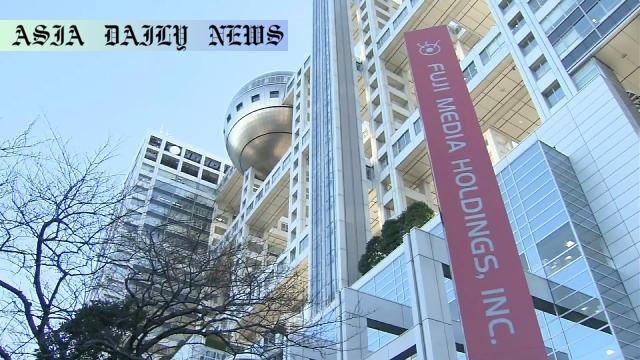Governance issues plague Fuji Media and Fuji TV, as US fund calls for Hieda’s resignation and an independent board overhaul.
- Governance of Fuji Media Holdings is under scrutiny due to a high-profile scandal.
- Dalton Investments, holding 7% shares, calls for Hieda Hisashi’s resignation.
- The US fund demands a shift to a board majority of independent directors.

The Scandal Surrounding Fuji Media Holdings
Fuji Media Holdings, a prominent Japanese media conglomerate, is currently facing heightened scrutiny over governance issues. A major US investment fund, Dalton Investments, which owns over 7% of the company, has raised serious concerns about management dysfunction triggered by a scandal involving a high-profile TV personality. At the center of the controversy is Hieda Hisashi, an executive managing advisor for Fuji Media Holdings and Fuji Television Network. The fund has publicly demanded his resignation, citing governance concerns and his considerable influence over the boards of both companies.
US Fund’s Criticism: Structural Flaws and Dysfunction
Dalton Investments, in its February 3 letter to Fuji Media Holdings, pointed out what it describes as significant structural flaws within the company. The fund highlighted that the recent scandal has amplified public awareness of governance inefficiencies. A bold statement in the letter reads, “Unless these structures are overhauled and reformed immediately, sponsors and collaborators will not return.” This suggests that the governance crisis has tangible financial and reputational effects that Fuji Media cannot afford to ignore.
The Call for Independent Board Members
One of the most salient recommendations by Dalton Investments is the demand for the appointment of a majority of independent directors to the board. This call for reform aligns with global trends prioritizing transparent corporate governance. Dalton Investments views the current structure, where Hieda retains “absolute control and influence,” as an obstructive force against reform and progress. The fund’s insistence on structural change underscores its lack of confidence in the present leadership to navigate the company out of the crisis.
Impact on Stakeholders and Public Perception
The governance issues at Fuji Media and Fuji TV have far-reaching implications, not just for shareholders but also for employees, sponsors, collaborators, and the public. Stakeholder trust is a critical component of any successful media organization, and the recent controversies could lead to sponsor withdrawals and a diminished reputation. The handling of this situation offers a test case for how effectively Fuji Media can self-correct and address stakeholder grievances in a manner that aligns with modern corporate norms.
The Role of the Reform Committee
In response to these concerns, Fuji Media Holdings has established a reform committee. Composed of seven independent directors, the committee aims to listen to shareholders’ opinions and recommend actionable steps towards governance improvement. However, the effectiveness and objectivity of this committee under the current governance structure remain to be seen. Transparency and proactivity are crucial for the committee to restore lost trust and showcase the company’s commitment to meaningful reform.
Challenges Ahead
While the establishment of a reform committee is a step in the right direction, the path to genuine reform is fraught with challenges. A key hurdle lies in overcoming entrenched leadership practices, particularly those associated with Hieda’s long-standing influence. Furthermore, aligning the interests of diverse stakeholders and achieving consensus on governance changes will require tact and determination.
Conclusion: The Way Forward
For Fuji Media Holdings, this governance crisis represents both a challenge and an opportunity. Resolving these issues could serve as a critical moment in the company’s history, enabling it to realign its operations with global best practices and bolster its reputation. Transparency, accountability, and swift implementation of reforms are imperative. By addressing fundamental governance flaws and engaging openly with shareholders and stakeholders, Fuji Media can endeavor to rebuild trust and sustain its competitive position in a demanding media landscape.



Commentary
Reflecting on Governance Challenges
The scenario unraveling at Fuji Media Holdings offers a compelling example of how governance issues can ripple across an organization, creating both internal and external challenges. Dalton Investments’ bold stance reflects a growing trend among activist shareholders who demand accountability and structural reforms in the face of dysfunction. Their criticisms highlight the importance of governance as the cornerstone of a company’s long-term success and credibility.
The Role of Leadership in Corporate Integrity
It is hard to overlook the pronounced influence of Hieda Hisashi in the current governance debacle. Leadership plays a crucial role in shaping the cultural and operational environment of any corporation. By citing Hieda’s extensive control over the board, Dalton Investments emphasizes the detrimental impact of concentrated power. This raises important questions about how companies can balance leadership stability with checks and balances to prevent such scenarios.
Opportunities for Meaningful Change
Though the current crisis paints Fuji Media in a negative light, there is room for optimism. The establishment of a reform committee signals an acknowledgment of the problem and a willingness to embrace change. Moving forward, it is crucial for Fuji Media to act on these recommendations decisively. Transparent reforms that align with shareholder and public expectations can serve as a turning point, transforming this crisis into an opportunity for revitalization.
Final Thoughts
At the heart of this issue lies a broader lesson on governance that extends beyond Fuji Media Holdings. Modern businesses operate under the watchful eyes of stakeholders who demand accountability and integrity. For Fuji Media, this challenging moment presents a chance to set a precedent for reform and resilience. The choices made in the coming months will determine whether this episode is remembered as a disaster or a catalyst for meaningful change.